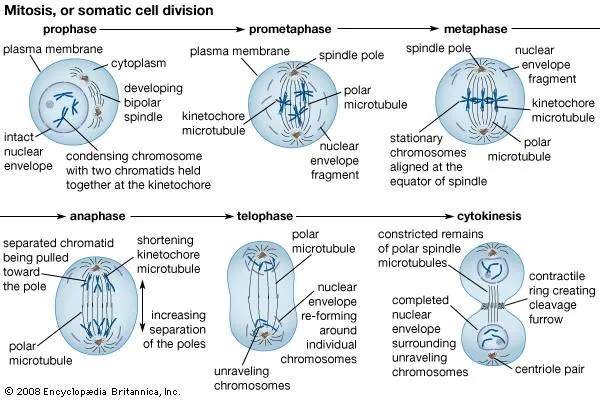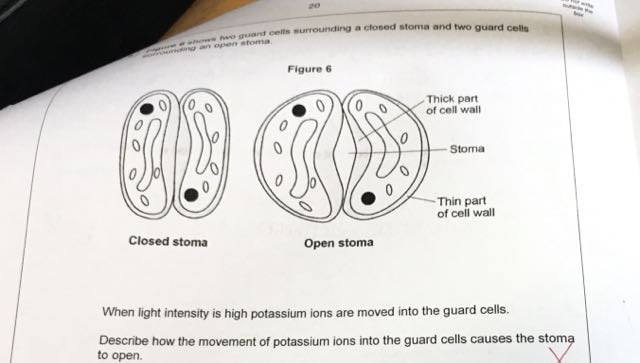Whether GCSE Biology is hard can vary from person to person. For some students, the concepts may come naturally, while others may find certain topics more challenging. The difficulty also depends on your interest in biology, your study habits, and the effectiveness of your learning resources.
Generally, GCSE Biology covers a range of topics such as cells, genetics, ecology, and human biology, so it requires a good understanding of scientific concepts and the ability to apply them. With dedication and effective study strategies, many students successfully navigate GCSE Biology.
What influences the difficulty of GCSE Biology?

The difficulty of GCSE Biology can be influenced by several factors:
Curriculum Complexity
The depth of topics refers to how extensively each concept is explored within the curriculum. For example, the study of cell biology may encompass not only the structure and function of cells but also cellular processes such as metabolism, cellular communication, and cell division.
The breadth of topics refers to the range of subjects covered in the curriculum. A comprehensive GCSE Biology curriculum may include areas such as biochemistry, genetics, ecology, physiology, and evolution, each requiring a different set of knowledge and skills.
Conceptual Difficulty
Biology often deals with abstract concepts that are not directly observable, such as molecular interactions or evolutionary processes. Understanding these concepts may require students to think critically, visualize abstract models, and make connections between different levels of biological organization.
Biological systems, from individual cells to entire ecosystems, are complex and interconnected. Students must grasp the interactions and feedback mechanisms within these systems, which can involve understanding emergent properties, feedback loops, and the role of environmental factors.
Prior Knowledge
Concepts learned in earlier years of science education, such as basic chemistry, cell structure, and the principles of heredity, form the foundation for understanding more advanced topics in GCSE Biology. Students who have a solid understanding of these foundational concepts may find it easier to build upon them in their GCSE studies.
The preparation provided during Key Stages 3 and 4 (ages 11-16) can significantly impact students’ readiness for GCSE Biology. Teachers may vary in how effectively they cover the required material and prepare students for the increased depth and complexity of the GCSE curriculum.
Practical Component
Students may encounter experiments that require them to design procedures, select appropriate controls, and analyze data. Understanding experimental design principles and scientific methodology is essential for success in the practical component.
Practical tasks often involve collecting and analyzing data, which requires students to apply statistical techniques, interpret graphs and charts, and draw conclusions based on evidence. Proficiency in data interpretation is crucial for achieving high marks in practical assessments.
Assessment Format
Different types of questions may require different cognitive skills. Multiple-choice questions may test recall and recognition, while extended response questions assess students’ ability to analyze information, apply concepts, and construct coherent arguments.
The time allotted for examinations can influence perceived difficulty. Students must manage their time effectively to answer all questions within the allocated time frame, which can add pressure and complexity to the assessment process.
Teaching Quality
Engaging teaching methods, such as interactive discussions, hands-on activities, and multimedia resources, can enhance students’ understanding and retention of biological concepts.
Effective teachers differentiate instruction to meet the diverse needs of students, providing additional support or enrichment activities as needed. Teachers who offer personalized feedback and encouragement can help students overcome challenges and build confidence in their abilities.
Individual Learning Styles
Visual learners benefit from diagrams, charts, and illustrations that help them visualize biological concepts and processes.
Auditory learners prefer explanations, lectures, and discussions that allow them to hear information and engage in verbal processing.
Kinesthetic learners learn best through hands-on experiences and may benefit from practical activities, laboratory experiments, and interactive simulations.
External Factors
Students’ motivation, interest in the subject, and belief in their own abilities can significantly influence their approach to learning and their willingness to overcome challenges.
Effective study habits, such as time management, organization, and active learning strategies, can help students succeed in GCSE Biology.
Supportive family environments that encourage learning, provide access to resources, and prioritize education can contribute to students’ academic success in biology.
Balancing extracurricular activities, part-time employment, or family responsibilities alongside academic studies can impact students’ available time and energy for studying biology.
How is GCSE Biology content structured?

GCSE Biology content is typically structured to cover a range of topics spanning biological concepts, principles, and their applications. The specific structure can vary somewhat depending on the exam board, but generally, the content is organized into several key areas:
- Cells: We learn about the tiny building blocks of living things and how they work.
- Body Systems: We study the different parts of our body, like the heart and lungs, and how they help us stay healthy.
- Germs and Health: This part teaches us about how our bodies fight off sickness and what we can do to stay well.
- Energy: We find out how living things get energy to move and grow, like how we eat food and plants use sunlight.
- Staying Balanced: We learn how our bodies keep everything in balance and react to changes around us.
- Inheritance and Change: We explore how traits are passed down from parents to kids and how living things can change over time.
- Nature’s Balance: This is about how all living things interact with each other and their environment, like how animals depend on plants and vice versa.
How do students perceive the difficulty of GCSE Biology?
Students’ perceptions of the difficulty of GCSE Biology can vary widely depending on a range of factors, including their interest in the subject, their prior knowledge and academic background, their study habits, and the effectiveness of their teachers. Some students may find GCSE Biology relatively easy if they have a strong grasp of scientific concepts and enjoy learning about the natural world. Others may struggle with the subject if they find certain topics challenging or if they have difficulty understanding scientific terminology and processes.
Additionally, the perceived difficulty of GCSE Biology may also depend on individual preferences and strengths. For example, students who excel at memorization and rote learning may find the subject easier than those who struggle with memorization but excel at critical thinking and problem-solving.
Overall, perceptions of difficulty are subjective and can vary greatly from student to student. Some may find GCSE Biology manageable with consistent effort and study, while others may perceive it as more challenging and require additional support and resources to succeed.
FAQs
Is IGCSE biology harder than GCSE?
IGCSE and GCSE are similar in content, but IGCSE is often perceived as more challenging due to its international focus and broader range of topics.
Is 3 months enough to study for GCSE?
Three months can be sufficient with focused and consistent study, but it may be challenging to cover all topics in depth within that time frame.
Is 1 month enough time to study for GCSE?
One month may not be adequate for comprehensive preparation, but intensive study during this period can still lead to a reasonable understanding of key concepts.
What grade do you need to pass GCSE biology?
A grade of 4 or above (previously a grade C or above) is generally considered a pass in GCSE Biology.
Final Words
GCSE Biology can vary in difficulty depending on different factors like personal interest, teaching quality, and study habits. The course covers various topics such as cells, molecules, and human biology, each with its own level of complexity. Students may find some areas challenging but with dedication and effective study strategies, they can overcome difficulties. It’s important to recognize that everyone’s experience with GCSE Biology may differ, but with perseverance, many students successfully navigate through the course.
